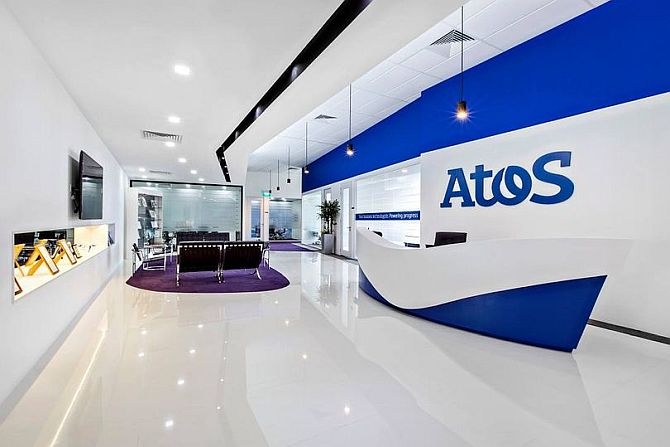IT firm Atos plans to hire 15K people in India by mid-2023
French IT firm Atos is planning to hire 15,000 people in the next 12-18 months in India, including climate experts, as it moves towards decarbonisation by 2028, chief operating officer (COO) Nourdine Bihmane said.
“India is a strategic market for Atos.
“We have been present here for the last 30 years, and we have grown organically since.
“People and innovation are our two key drivers to build momentum.
“India represents one-third of our total workforce,” Bihmane said.
Atos has around 40,000 employees in India.
The company had a total revenue of Euro 11 billion for the 2020 calendar year (CY).
The company’s workforce operates mainly from Mumbai, Pune, Bengaluru, Chennai, and Delhi-NCR and serves its customers across markets like Europe, North America, Asia-Pacific, and the Middle-East.
“We want to reinforce this commitment, that’s why Atos plans to hire those 15,000 additional employees,” the COO pointed out.
In terms of business priorities, he said that the company is shifting to four growth pillar strategy: digital services, cloud, cybersecurity and decarbonisation.
“These four sectors now represent more than half of our total revenue,” he added.
“Atos is opening a new Centre of Excellence dedicated to net-zero transformation in India that will support our local clients in their journey,” the COO said.
In India, to offset its CO2 (carbon dioxide) emissions from all its activities, Atos supports three wind farms located in Karnataka, Gujarat and Maharashtra, promoting the use of renewable energy and eradicating the emission of greenhouse gases.
With 137 turbines, the three wind farms have a total capacity generation of 109.6 megawatts and power approximately 40,000 households in rural areas.
From reducing their carbon footprint to helping them assess if they’re overbuying their technology and data centre requirements, technology firms are increasingly working on sustainability as a service.
According to some estimates, the global Information and Communications Technology (ICT) sector emits 1.4 per cent of the world’s carbon emissions.
In Gartner’s survey of Chief Executive Officers (CEO) last year, 5 per cent said sustainability was part of their top five priorities.
This year, it was around 9 per cent, and nine out of ten organisations want to increase investment on sustainability.
Bihmane said several stakeholders are already showing their commitment towards a new way of using digital equipment, compatible with the requirements of climate change and the circular economy.
He cited examples of Paris and Stockholm for the same.
The former has set up a data centre, where part of the energy is utilised locally to supply hot water and the latter has proposed data centre parks that offer an optimised cooling system that allows it to meet its carbon footprint reduction targets.
“Artificial intelligence and machine learning can also be critical in our fight against global warming.
“Through the computational power it offers, it can speed up the physical simulations needed for predictions and therefore the capacity of societies to adapt (climate models and energy management models for instance).
“Going digital should be considered a tool to accelerate the transition to a decarbonised and net-zero world and not an end in itself,” he added.
With the government’s push for the digitalisation of the economy, data will play a significant role in India, believes Bihmane.
Here, Atos is up and running as it works with customers on bigdata, artificial intelligence, machine learning and supercomputing, cybersecurity, cloud, and enterprise solutions and IT infrastructure management.
“These are our core offerings for customers.
“As a global leader in cybersecurity, Atos’ 15 next-generation Security Operations Centres (SOCs) are strategically placed across the globe and four of these are in India.
“Atos also has a hardware design and development centre for supercomputers, edge computers, and high-end AI servers in India,” he elaborated.
With Covid-19 pandemic having changed the world, work culture at Atos has evolved too.
“In the digital world, we have seen large-scale adoption of cloud while cybersecurity has also gained momentum as remote working has become the new normal.
“This hybrid work model is here to stay, and not only for us, but also for the rest of the IT industry.
“It will possibly be adopted by multiple sectors,” Bihmane said.
Photograph: Courtesy Atos India
For all the latest business News Click Here

